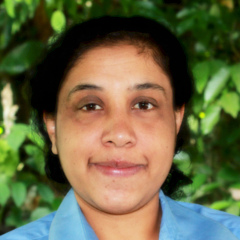ABC of Civil Services | Strategic planning needed to win marathon race

Mail This Article
The civil service examination is characterised by its three-stage selection process - the answering of multiple-choice questions in the preliminary examination followed by writing answers in a compact way and later orally giving answers to a group of eminent people. As each stage progress to the next, competition becomes intent. Though the content one has to memorise is more or less the same, the practice pattern differs for each stage.
When one begins the preparation, there could be a lot of confusion regarding where to start. There are people who do a lot of research online to know the books and resources. A few others are into collecting study materials from all the institutes possible. Selection of optional subject is another challenging task. I once came across a person who attended multiple optional classes at the same time to understand which was best suited for him! As there are many seniors to deliver free advices, one may end up receiving a lot of contradictory suggestions.
Tricky affair

I have seen recently that a lot of students worry about how to write quality answers for Main examination. Some students bring answers for correction from the very first week of classes. Many people who are overenthusiastic about this writing practice fail to clear the preliminary examination because they do not give adequate importance to the same. There are candidates who curse the UPSC for having a multiple-choice examination as a screening test before they get a chance to show off their writing abilities. Some people who can write really well find it difficult to master the game of choosing correctly from four confusing options. Even some candidates who make it to the interview list fail to clear the preliminary examination next time because of lack of practice.
On the other hand, there are people who clear preliminary every year but never make it to the next level. People who have done quizzing find the multiple-choice questions easy. Since the percentage of people who clear preliminary examination is just around three, they fellow aspirants look at them with admiration, especially if one is studying in a coaching institute. The juniors approach them for guidance and most of the institutes provide teaching and mentoring opportunities to people who have cleared prelims. If all these takes a toll on one's level of preparation, clearing Mains becomes a distant dream. Some may become arrogant with all this attention and lose focus. We recently came across a candidate who was repeatedly saying that he has cleared prelims while reminded to pay the fee for the test series!
Of course, people who fail to clear civil service in spite of multiple appearances in the personality test are also not rare. Since the combined mark of Main examination and interview is put together for the final ranking, one needs to improve the performance in both these stages to make it to the final list. Candidates who fail to analyse their weaknesses and mend them invariably have to repeat the three-stage cycle again.

Key points
While one starts preparation to write the examination, it is important to be well versed in basics like history, geography, polity and economics. The key is to stick to standard books and understand the concepts clearly. Also update the current affairs along with this using authentic sources like a good newspaper and official websites. Always keep the Mains as well as preliminary question papers so that one can check the types of questions possible. After covering an area, try to write the Main answers with the prescribed word limit and if possible, get it corrected with an experienced person. Similarly, work out the multiple-choice questions from that area too. From January onwards, the exclusive preparation for prelims should start with revising the areas and writing model tests. Soon after prelims, switch over to topic wise revision and answer writing for Mains. After the Mains, take a break and then start polishing the presentation skills along with updating current happenings and one's bio-data. This routine has to be followed till one clears each stage.
Civil service examination could be compared to the snake and ladder game which was once called "Moksha patam", the path of salvation. Failure at any stage means that one has to undergo the whole process again. So, systematic, disciplined hard work and a willingness to check and correct one's mistake is very important to be a winner.

(The author is a former IPS officer and a trainer for civil service aspirants.)


